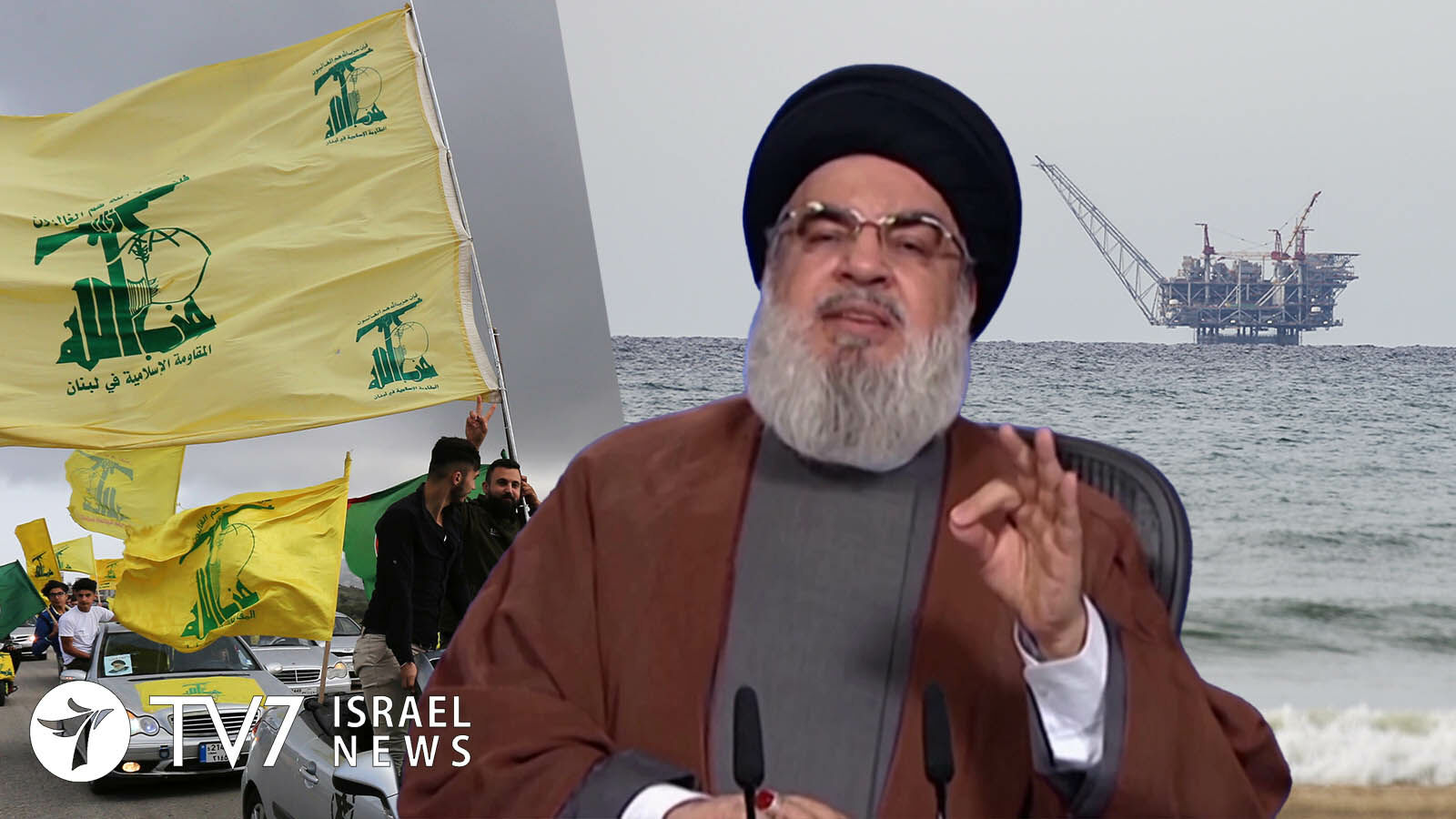The leader of the Iran-backed terror group threatened it will take action if Israel explores disputed Mediterranean reserves prior to setting maritime borders with Lebanon.
By Erin Viner
United States-mediated talks between Israel and Lebanon to delineate offshore boundaries in the Mediterranean Sea have been stalled for some time. The neighboring states, which are in a formal state of war, began a series of negotiations in October 2020 at a United Nations peacekeeper base in the southern Lebanese city of Naqoura.
“If the enemy thinks they can act as they please before reaching a solution to this issue they are wrong,” Hezbollah Secretary General Sayyed Hassan Nasrallah asserted in a speech broadcast from an unknown location, stressing, “I will not state any positions on this as I don’t want to complicate the negotiations but for sure the resistance in Lebanon at the right time through following this issue when it finds that Lebanese oil and gas is in danger in the disputed area it will act accordingly.”
Resolution of the dispute between the old foes could lead to Lebanon being able to unlock potentially valuable reserves in the gas-rich area that could help it to overcome a devastating financial crisis amid rising sectarian violence among the impoverished population. The maritime border dispute has held up exploration in the but talks have since stalled.
Nasrallah’s threats follow Israel’s granting of a Mediterranean drilling contract with the US Halliburton oilfield services group last month. Israel has long pumped natural gas from huge reservoirs off its coast, and the Halliburton deal is the latest awarded as part of the country’s fourth offshore well drilling campaign.
Lebanon’s Prime Minister Najib Mikati instructed his foreign minister to find out more about the Israel-Halliburton deal from the international community, while cautioning in an official statement that his country had no intention of relinquishing any maritime rights. According to the Lebanese Foreign Ministry, Beirut’s top diplomat Abdallah Bou Habib subsequently sought confirmation through contact with Lebanon’s Permanent United Nations Representative, the US Embassy and other countries backing the maritime talks to ensure the contract does not involve work in the disputed waters.
Israeli authorities were not immediately available for comment.
Meanwhile, the US Mediator for the indirect talks, Amos Hochstein, has renewed Washington’s call to resume the Jerusalem-Beirut maritime negotiations.
“Perhaps there should be some shuttle diplomacy first, in order to assess the positions of the parties to identify where there is room for negotiation and then ultimately, to go back to Naqoura and complete the negotiations,” he said during an interview with Saudi-Al Hadath TV during a visit to the Lebanese capital last week.
“I think that in these kinds of efforts what we’ve learned is that if you take a lot of time, it doesn’t happen,” Hochstein cautioned, urging, “”So we need to be focused, and we need to move quickly.”
Hochstein highlighted the advantages Lebanon would reap by finalizing its border issue with Israel, by alleviating the Arab Republic’s critical power shortage through exploration and location of any offshore gas resources. Until now, Lebanon has yet to find commercial gas reserves within its own waters.
When asked about the US plan to to export Egyptian gas through a pipeline via Jordan and Syria to Lebanon, Hochstein said Washington has confirmed that the arrangement would not be in violation of American sanctions against Syria.
“We have determined that it is not — this kind of a transaction could be, likely is not, under — covered by the sanctions,” said the US envoy, adding, “And therefore we’ve informed the government here (in Lebanon), and we’ve informed the government in Egypt that it can move ahead.”
